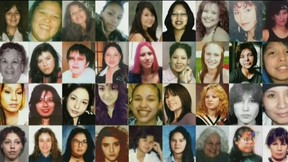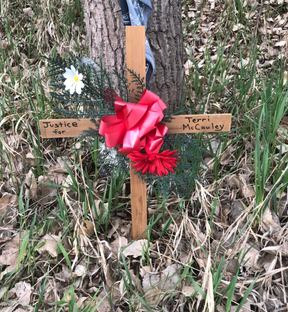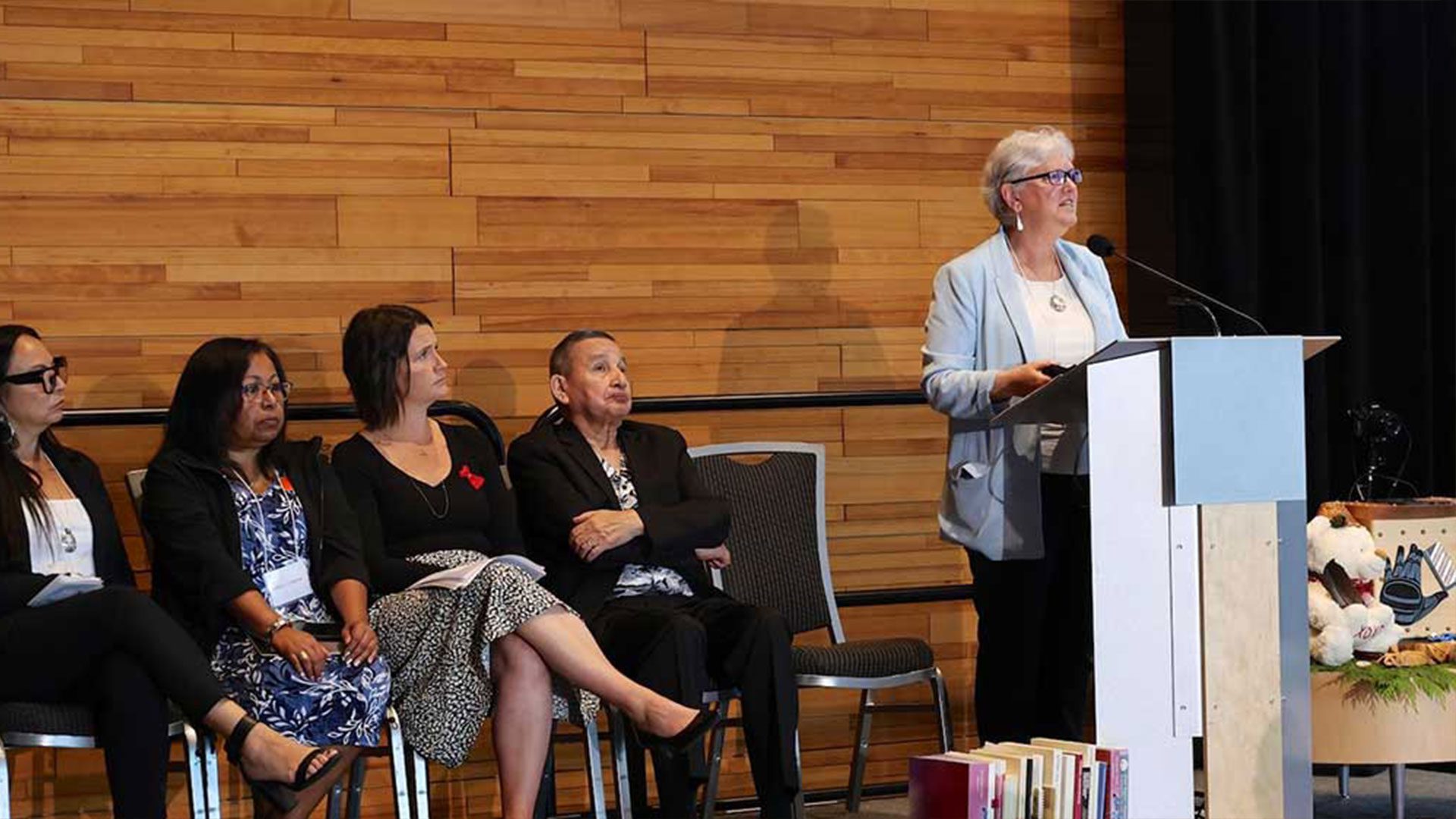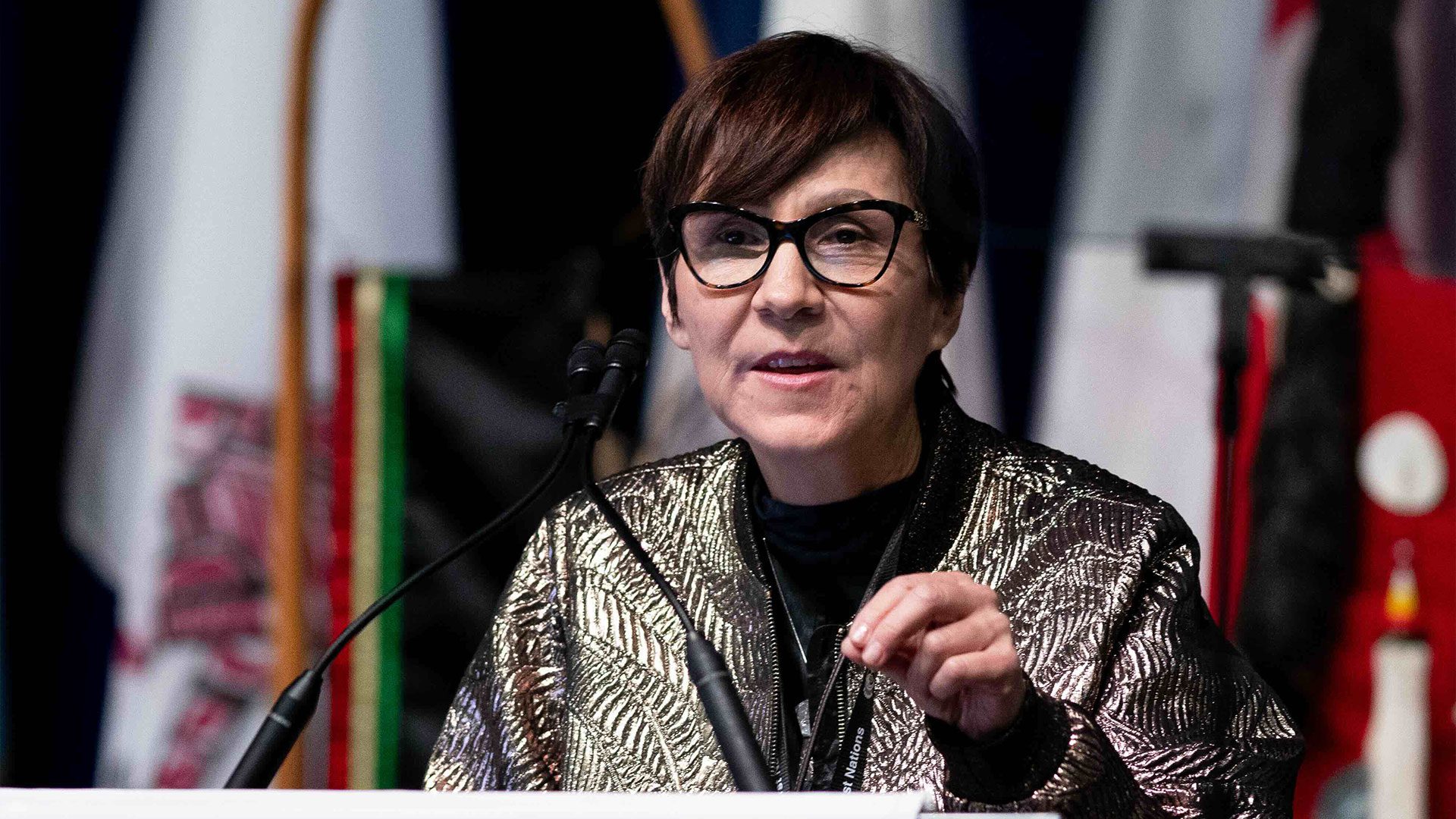WHAT? MORE WILL HAPPEN with the Real ID ACT as well... Trace

At least 15 Indigenous people in Arizona and New Mexico have reported being stopped at their homes and workplaces, questioned or detained by federal law enforcement and asked to produce proof of citizenship during immigration raids since Wednesday, according to Navajo Nation officials.
The reports, which have caused panic amongst tribal communities in both states, come amid the Trump administration’s attempt to ramp up undocumented immigrant arrests nationwide and amass a larger force to carry out the president’s deportation pledge. CNN has reached out to the White House for comment.
The reported raids and the exact number of Diné/Navajo and other Indigenous tribal citizens who were apprehended are still under investigation, Navajo Nation Council Speaker Crystalyne Curley told CNN. It is unclear if Immigration and Customs Enforcement or other law enforcement entities were conducting the apprehensions. ICE has not responded to CNN’s request for comment.
Navajo Nation officials have contacted the Department of Homeland Security, the governors of Arizona and New Mexico, and ICE to address the reports, the Office of Navajo President Buu Nygren said in a news release Friday.
“My office has received multiple reports from Navajo citizens that they have had negative, and sometimes traumatizing, experiences with federal agents targeting undocumented immigrants in the Southwest,” Nygren said in the release.
Justin Ahasteen, executive director of the Navajo Nation Washington Office, said his office has not confirmed any reports of ICE action against Navajo citizens.
According to Ahasteen, one tribal member was involved in a raid in Phoenix. Ahasteen told CNN the incident was a “wrong place, wrong time” situation and the tribal member, who presented their tribal identification and was questioned while in custody, was not the intended target.
The person was released, Ahasteen said.
CNN has also contacted New Mexico State Police, the Navajo County Sheriff’s Office and the Navajo Nation Police Department for comment.
Arizona state Sen. Theresa Hatathlie, who is Diné/Navajo, told CNN she received a report from the family of a Navajo woman who said she was questioned by ICE and asked to show proof that she was Native after her workplace was raided Wednesday morning.
The woman says she was at her work site in Scottsdale, Arizona, when she and seven other Indigenous citizens were lined up behind white vans and questioned for two hours without their cell phones or a way to contact their families, according to Hatathlie.
“Now is it ICE or some other entity, I don’t know,” said Hatathlie, who represents Legislative District 6, which encompasses the Navajo Nation. “I did work with some individuals to confirm whether or not ICE did do that work site raid, but the communication back to me was that it’s not a normal practice for ICE to confirm a raid or not.”
The woman says she was eventually permitted to use her cell phone and text family members, who sent her a photo of her Certificate of Degree of Indian Blood (CDIB), and she was then allowed to leave, Hatathlie said. It is unclear what happened to the seven other Indigenous people who were questioned.
The Navajo Nation Council received the reports through social media and calls to council delegates from families who said they were visited by ICE at their apartments and place of work, Curley said.
“There’s a lot of fear, and I know they’re probably feeling frustrated knowing that they don’t feel safe in the country where they were born or where their ancestors come from and there’s a lot of frustration of them being stereotyped,” Curley told CNN.
“I think there’s a confusion with other races, maybe just because having a brown skin, automatically being profiled or stereotyped to be in a certain group of race.”
Hatathlie pointed to the double standard of Indigenous people welcoming settlers who later colonized their lands, forced Native children into violent boarding schools and banned displays of Native cultural practices, only to be victims of practices such as immigration raids – when the law enforcement officials’ ancestors were immigrants themselves, she said.
”If you can’t say, ‘we’ve been here for time immemorial,’ then you’re an immigrant. You’re not from here, so who are you to classify our Indigenous people? These lands have been a melting pot for many ethnicities,” Hatathlie said.
“It’s too kind to say it’s racism or discrimination. It’s disrespect for humanity.”
Indigenous people urged to carry their documentation
Operation Rainbow Bridge, a nonprofit that supports Navajo citizens who are victims of Medicaid fraud in Arizona, has launched the Immigration Crisis Initiative to assist Indigenous people impacted by federal law enforcement raids.
Diné, which means “The People” and is how Navajo people refer to themselves, and other Indigenous tribal members are being advised to carry state-issued identification along with their Certificate of Degree of Indian Blood in preparation of possible run ins with federal immigration officials and other law enforcement.
The initiative has a hotline for people to call so Diné and other Indigenous citizens who are being questioned or detained can call for immediate assistance, and to help government officials identify the documents they are being presented with.
Although a person might be carrying their certificates and tribal identification cards, many of the reports said the agents who detained or questioned them didn’t acknowledge the documents as valid proof of citizenship, Hatathlie said.
“With the way things are going right now and these types of situations, we have to put measures in place in order to help our constituents and government entities so that they can be a resource,” Hatathlie said.
“Tribes should communicate to Homeland Security and say, ‘This is a sample of our travel enrollment card. This is the sample of our Certificate of Indian Blood. If you have any questions to verify, here is a hotline. Here is a website,’” Hatathlie added.
The Navajo Nation Office of the President released a tip guide for Diné who are confronted by immigration agents. The guide advises them to request to see the agents’ identification to confirm their legitimacy, exercise their right to remain silent and speak to an attorney if they are arrested or detained, and to document the interaction if possible so they can later report the encounter.
Navajo Nation officials urged Diné and other Indigenous tribal citizens to apply for tribal ID cards, such as the Navajo Nation Identification card, if they don’t have one. Families are also being urged to educate their children on the ongoing incidents.
The guidance also advises against opening their doors if immigration agents show up at their homes without showing a valid warrant signed by a judge.
“Some public sites, organizations, and restaurants are being raided by ICE,” Operation Rainbow Bridge states on its website. “As a precaution, your children should memorize your phone number and their (Social Security Number), and everyone should have current, valid documentation on them” including Social Security cards, Navajo Nation Identification cards, Certificate of Degree of Indian Blood or passports, according to the statement.
‘No one is illegal on stolen land’
For Indigenous peoples who inhabited the Americas for thousands of years before the colonization of their lands and the brutal treatment of their people, the recent sweeps have reopened old wounds.
Diné elder James Jackson, an honored activist in the Navajo community, told CNN the recent immigration raids and their impact on his community are “shameful.”
“It’s making people hyperaware of their surroundings, limiting their travel in their daily lives because they worry they will get stopped,” said Jackson, who lives in Tuba City between the four Sacred Mountains of Navajo 90 miles north of Flagstaff, Arizona.
Although he worries for his community, Jackson says he also feels anger on behalf of immigrants from other countries who came to the US to escape violence and economic hardship for the sole sake of their families’s survival.
“No one is illegal on stolen land,” Jackson said. “It really goes back to the Indigenous way of life, that everything is made for the people. People have to understand that this is not the way to live or to be honorable and neighborly with each other.”
Anti-immigration tactics like the recent raids, Hatathlie and Jackson said, go against Indigenous values and their ways of life which allowed Native people to prosper and live in harmony with the land for thousands of years before American colonization.
“We always talk about the environment and how we belong to the earth,” Hatathlie said. “That sets the groundwork for having respect for what’s around us, especially for our children and our great grandchildren, and they’re the future.”
There are concerns for the safety of multiple Native tribes who live in areas near the border, including Tohono O’odham, who have been in the Sonoran Desert for thousands of years and live on both sides, regularly traveling back and forth, Jackson said.
The reported raids have triggered panic and anger stemming from generational trauma endured by Native people whose ancestors and elders like Jackson had to fight to take back mere fragments of their land and reclaim their language and culture, which they had so long been forbidden from practicing, according to Hatathlie.
“We’ve come a long way building relations, but these initiatives of the current administration are a huge step backwards,” Hatathlie said. “These are the attitudes and the mindset of privileged individuals.”
“The settlers showed up sick, they were hungry, they were lost, and then all of a sudden, they were given a place to eat and sleep, and they ended up taking more than than they were provided,” she said. “They wore out the welcome mat at this point.”
CNN’s Andi Babineau contributed to this report.
LINK: https://www.cnn.com/2025/01/27/us/navajo-detained-ice-indigenous-immigration-trump/index.html



































